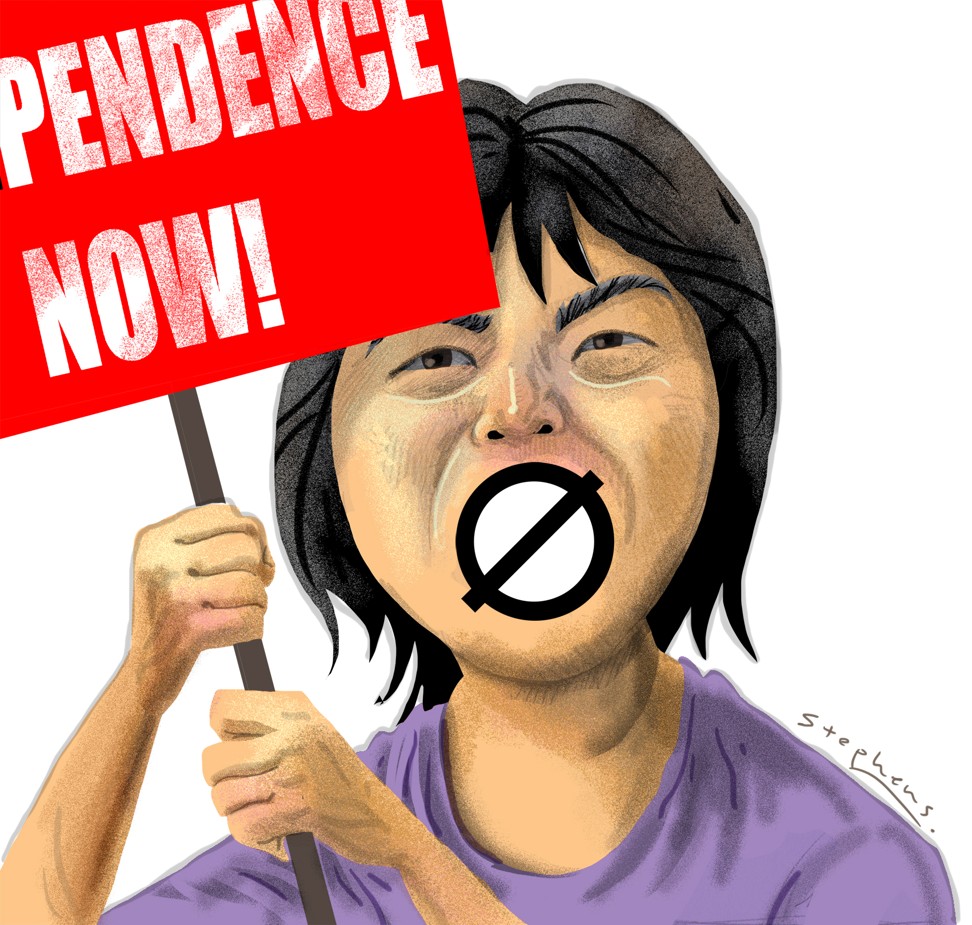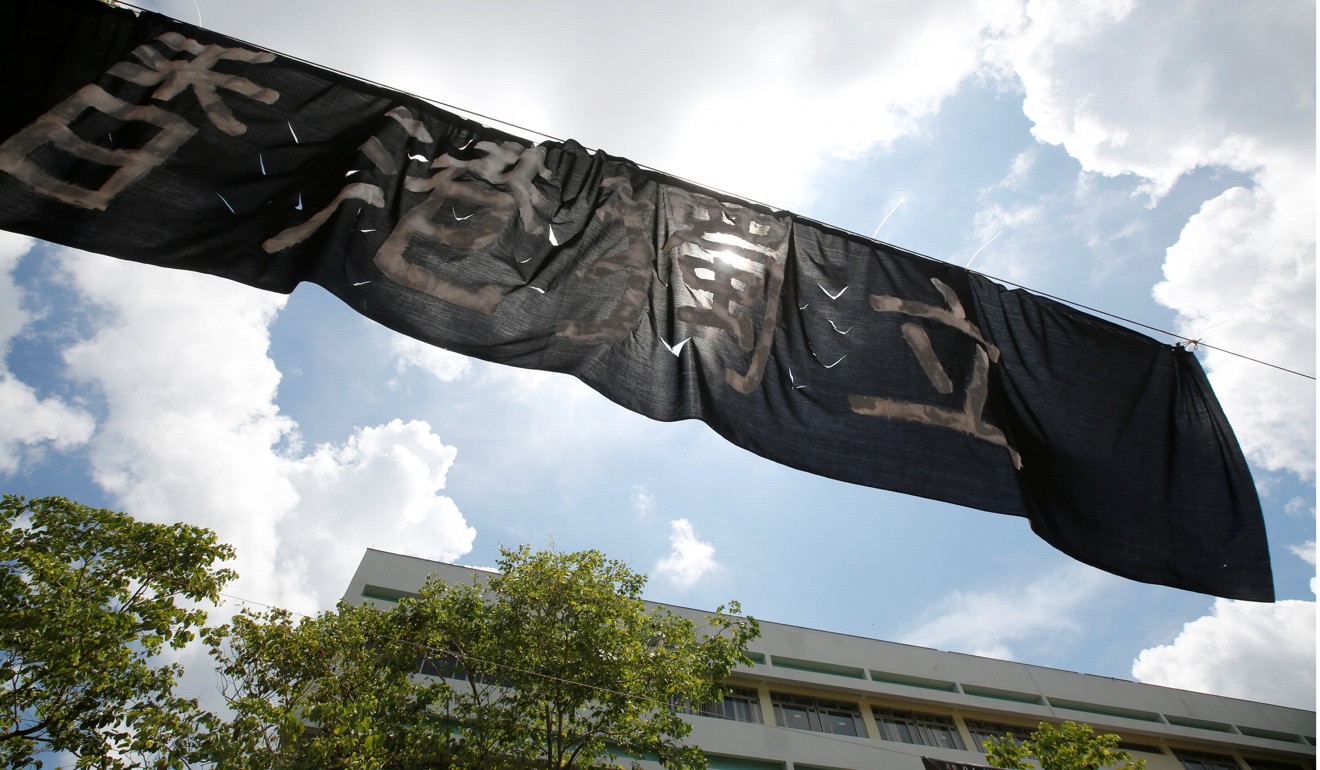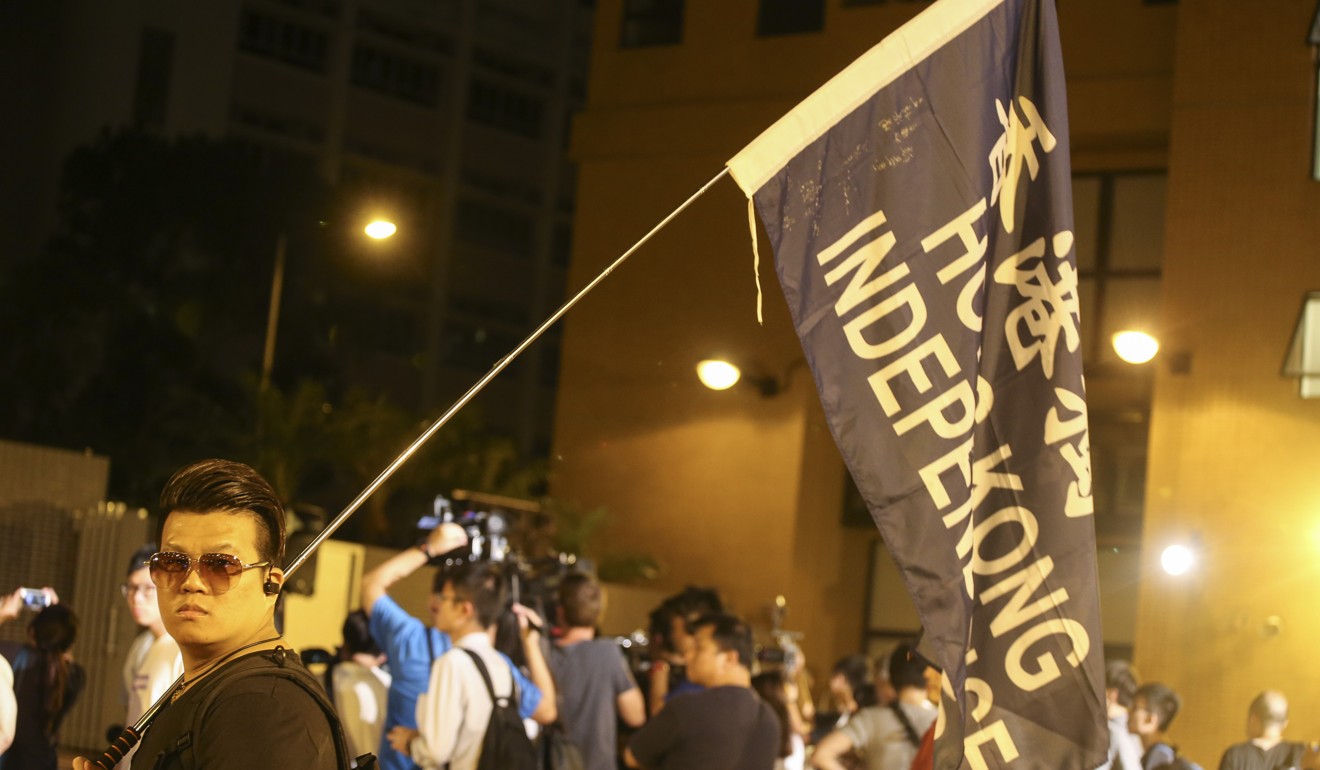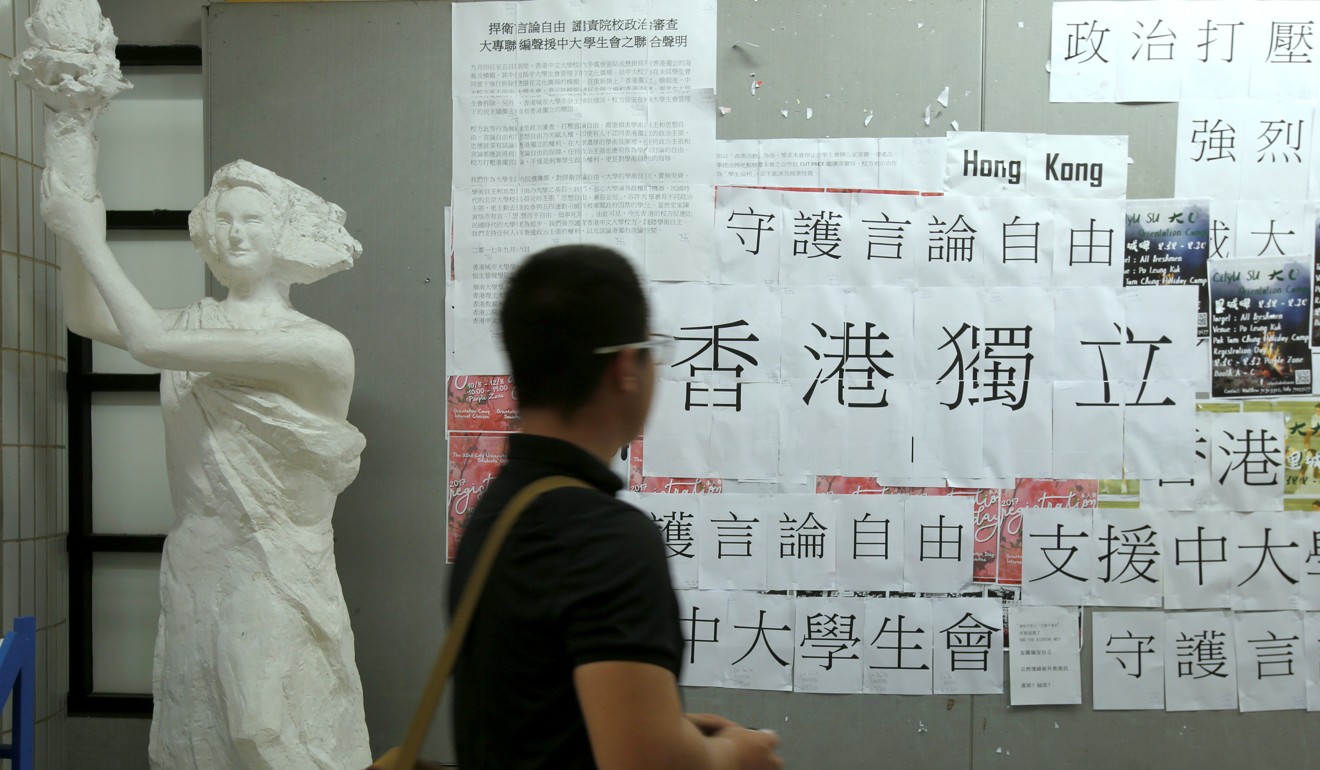
Prosecute those who push for Hong Kong independence
Tian Feilong says freedom of speech does not protect independence advocacy because it is unconstitutional in Hong Kong, and the uproar over pro-independence posters on university campuses illustrates the consequences of indulging such acts of defiance

The posters’ message and the tenor of the debate underline two attributes of Hong Kong’s independence push. First, talk of Hong Kong independence is protected by freedom of speech, and may not be curbed. Second, supporters are no longer interested in debating independence; rather, independence is accepted as a matter of course.
We seem to be seeing the emergence of a “natural independence” attitude in Hong Kong. A term first used in Taiwan, it describes the leanings of a new generation of Taiwanese youth who see independence as a natural progression. In this, Hong Kong is going the way of Taiwan.
Hong Kong’s young democrats need some lessons on democracy
This is not surprising. China’s rise presents a great challenge to the preservation of Hong Kong’s and Taiwan’s ways of life, and those who are determined to reject the country’s power have become almost pathologically depressed and angry. In the grip of such mental pain, rational thinking and democratic ideals – even ethics – may go out of the window.
Ernie Chow Shue-fung’s tirade in college row goes beyond the pale

Many of these students were born around the time of the Hong Kong handover. They have no strong feelings for China, and are bred on the city’s Westernised education and value systems.
Hongkongers should re-educate themselves on Chinese history
These young people grew up with a strong sense of localist identity on the one hand, and an international outlook that is a legacy of colonialism on the other. They somehow merged the two to create a unique and distorted colonial nativism, one that undercuts a patriotism that is based on the Basic Law and “one country, two systems”. Their push for independence is not just illegal, but downright unconstitutional.
In the argument between the mainland student and those who stopped her from taking down the posters at Chinese University, the local students raised two points: one, they were legitimate representatives of the student union; two, freedom of speech permits talk of independence, and the mainland student could put up opposing views if she liked.
Watch: Mainland student stopped from tearing down pro-independence posters
These “articles of faith” appear sound on the surface: elected members of the student union can indeed represent the students, and both proponents and opponents of Hong Kong independence should respect one another and may freely post their opinions. However, these principles would lead to law-breaking if applied to acts advocating Hong Kong independence.
Hong Kong independence is no longer just an academic discussion. It has become a well-organised campaign of political subversion
The radicalisation of student unions impedes rational discussion and the blooming of a true diversity of views, thus hindering the development of democracy on campus.
Further, the position that free speech allows the promotion of Hong Kong independence has no basis in law, because the Basic Law does not protect hostile, subversive acts. Post-war Germany devised a system of “defensive democracy” in its 1949 Basic Law to prevent the resurgence of fascist tyranny, effectively ruling out subversive acts against the constitution by radicals on both the left and the right. Freedom and democracy cannot coexist with their enemies – this is well understood in the constitutional theories of Western civilisation.

Explain This: why all the fuss about Hong Kong independence?
Hong Kong’s political system is based on the Basic Law and “one country, two systems”. Today, Hong Kong independence is no longer just an academic discussion. It has become a well-organised campaign of political subversion, backed by theory and actions.
In the past, Hong Kong society allowed the spread of independence talk under the umbrella of free speech, because either people did not think such talk was harmful, or they thought the problem could be resolved through persuasion and education.

Clarify whether independence banners are criminal offence, Hong Kong justice chief urged
The poster incident shows that neither blind indulgence nor education works. The only viable solution is to tackle the scourge in accordance with the law. Beijing backs the Hong Kong government in taking measures against independence forces according to the law, under the “one country, two systems” framework.
‘Not a question of freedom of speech’: Carrie Lam takes aim at posters
The Hong Kong government must shoulder its constitutional responsibility and prosecute those who flout the sedition clauses in the Crimes Ordinance, to create court precedents that would plug the loopholes in the city’s national security law, before Article 23 legislation is enacted.
In the face of the common enemy of a threat to the city’s constitution, the SAR’s governing authorities and the community itself should rid themselves of this independence scourge, and live up to the SAR’s autonomous status.
Based on the logic of “defensive democracy”, pro- and anti-independence remarks should not be equally protected under the constitution. Nor should they be debated on an equal footing.
Pro-independence students have broken the law to cause serious damage to Hong Kong and themselves as they misunderstand the legal boundaries of free speech. One logical solution is to clearly define the legal boundaries and liabilities of free speech.
Tian Feilong is an associate professor at Beihang University’s Law School in Beijing, and a director of the Chinese Association of Hong Kong and Macau Studies

